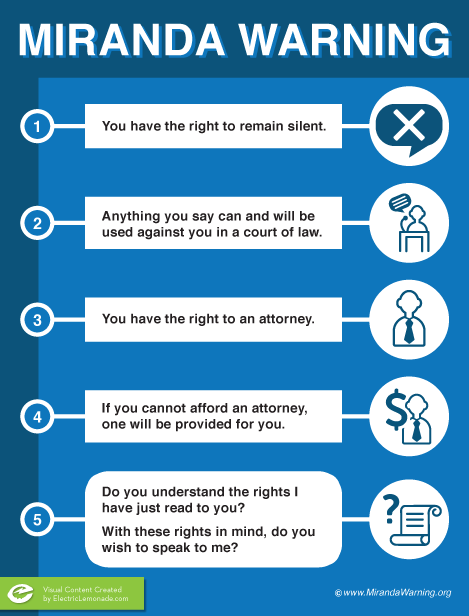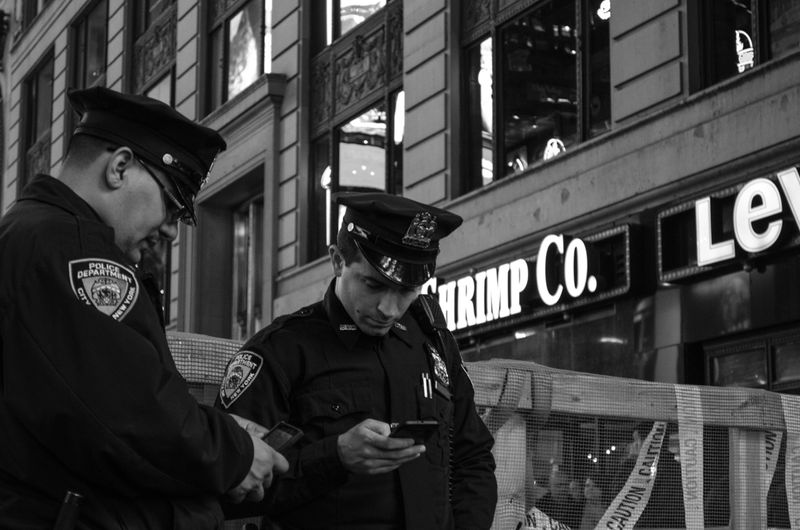The Miranda Warning is customarily said by police to a criminal suspect in police custody to advise them of their Miranda Rights.
The Miranda Warning is meant to protect criminal suspects from self-incrimination under the Fifth Amendment.

What Do I Need To Know About A Miranda Warning?
Police are only required to Mirandize (state the Miranda Warning) a suspect if they are questioning the suspect in the context of a criminal investigation.
If there is concern about public safety, questions may be asked without the suspect being Mirandized. In this circumstance, any evidence gathered may be used against the suspect.
Someone who is arrested must still answer basic questions regarding their name, age, address, etc.
A suspect may be searched in order to protect the police officer.
A confession given before the suspect has been Mirandized can be used as evidence in court.
If you have waived your Miranda Rights, meaning you are speaking freely to police without an attorney present, you have the right to change your mind at any time. You may 'plead the fifth', which means you no longer wish to answer questions or you wish to have an attorney present.

Take Action

YOU HAVE THE RIGHT TO REMAIN SILENT.
You do not have to respond to any questions a police officer asks you regarding criminal activity, either in court or in police custody.

YOU HAVE THE RIGHT TO AN ATTORNEY.
If you are being interrogated by police, you may ask for an attorney. If you cannot afford an attorney, one will be provided for you. Police cannot ask you any further questions without the presence of an attorney. You should be very direct in your request — "I want an attorney. I will not talk until I have an attorney."
Check out these Bytes to learn more:
Your feedback matters to us.
This Byte helped me better understand the topic.
